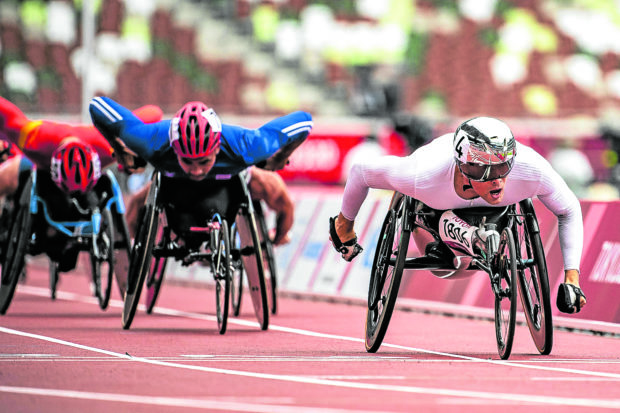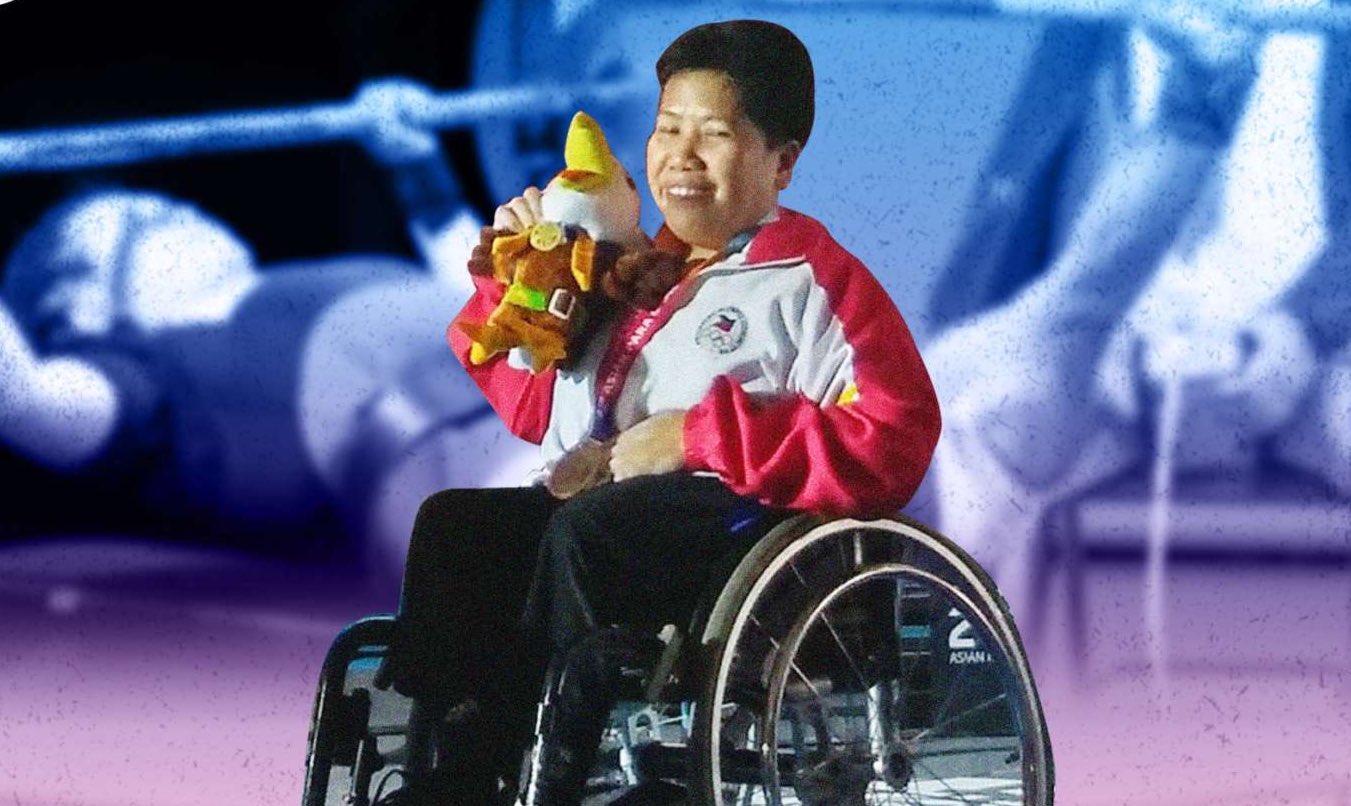Para chief rues: PH Paralympians faced long odds even before flying to Tokyo

Switzerland’s Marcel Hug (center) competes in the final of the men’s 1500 meter (T54) at the Tokyo 2020 Paralympic Games. While Paralympians all over the world had to deal with the pandemic, things were particularly hard for Filipino bets, whose training center was repurposed into a public quarantine area. —AFP
Philippine Paralympic Committee president Mike Barredo has been to six consecutive Paralympic Games; each one of them offered a diverse set of obstacles that he and his athletes needed to hurdle.
But the complications presented by the ongoing 2021 Tokyo Paralympics, from the preparation of the country’s para athletes up to their participation, was entirely uncommon and hands-down the most nerve-racking by far due to the omnipresent threat of the COVID-19 pandemic.
“We practically had no training in 2020 due to the pandemic because our national para athletes were forced to leave the Philsports Complex where they stayed,’’ said Barredo during the break of Team Philippines in the Games on Tuesday. “But we understand this reality. It is what it is.’’
Filipino para athletes, including the six who qualified for the Tokyo Games, practically got sidelined from training because of the global health crisis that forced the national government to repurpose the Philsports Complex in Pasig City as a public quarantine area for patients who tested positive for COVID-19.
“Our able-bodied national athletes had problems in finding facilities to train for the Tokyo Olympics, but it was doubly hard for our para athletes,’’ said Barredo, a recipient of the Paralympic Order in 2013, the highest honor a person connected with the Paralympic Movement can achieve.
“We needed not only accessible training venues, but also accessible accommodations for them,’’ added Barredo.
The Philippine Sports Commission (PSC) came to the rescue by providing the qualified athletes—swimmers Ernie Gawilan and Gary Bejino, wheelchair racer Jerrold Mangliwan, powerlifter Achele Guion, taekwondo jin Allain Ganapin and discus thrower Jeanette Aceveda—bubble trainings prior to the Games.
“We have nothing to say but thank the PSC for the all-out support they have given our athletes, including their separate bubble training before leaving for Tokyo,’’ said Barredo, also the vice president of the Asian Paralympic Committee.
But the difficulties didn’t stop there.

Powerlifter Achele Guion. PSC PHOTO
Before embarking on their journey to the Japanese capital more than a week ago, Guion and her coach Antonio Taguibao were grounded after testing positive for COVID-19; so to were chef de mission Francis Diaz and athletics coach Joel Deriada.
A week later, two more members of their small contingent got infected—Aceveda and her coach Bernard Buen—after undergoing tests, depriving the first visually-impaired Filipino of the opportunity to see action in the biggest meet for the world’s best para athletes.
“I really felt sorry for her because this is a disability we share. It would have been an inspiration to visually impaired Filipinos that despite all of the challenges one could compete in the Paralympics,’’ said Barredo.
“It could have been her bragging rights for being the first,’’ he added, explaining that Aceveda promised to return to the 2024 Paris Paralympics.
The Philippine campaign resumes on Thursday with Bejino aiming to qualify for the finals of the men’s 400-meter freestyle S6 and Mangliwan racing in the heats of the men’s 100m T52, where he struck gold in the 2015 Asean Para Games in Singapore.
Aside from the short preparation of the para athletes and the havoc that COVID-19 inflicted on their athletes and officials, Barredo said the cancellation of the nation’s supposed hosting of the 2020 Asean Para Games and the threat that the Paralympics could be shelved for good also contributed to the challenge.
“It’s a very upsetting situation that is out of our control. We just have to keep a positive attitude and play the hand you’re dealt,’’ said Barredo.
